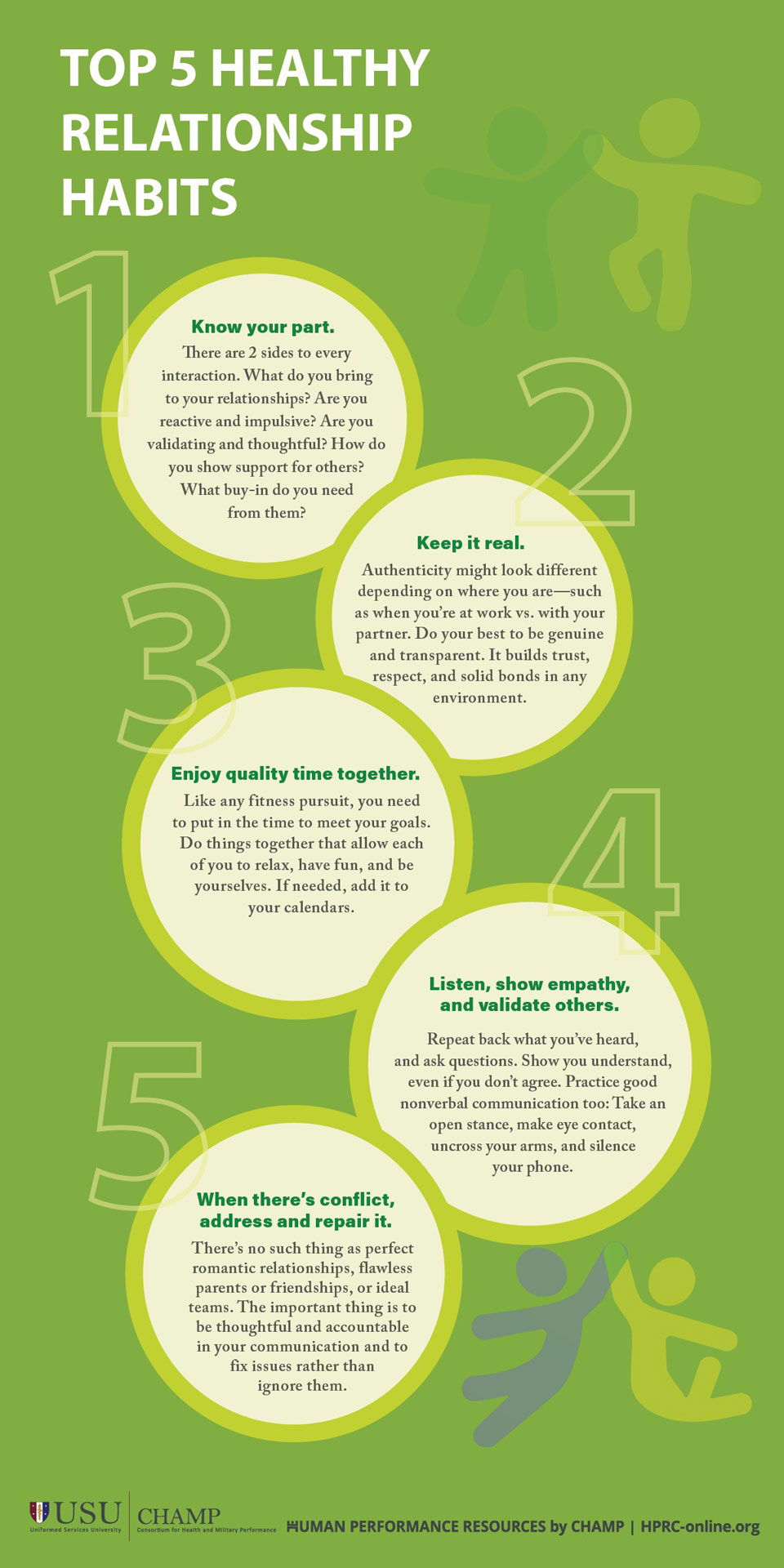Your relationships with your partner, family, friends, coworkers, or battle buddies can impact your health for better or worse. It’s not always easy to know exactly how to build (or maintain) the relationships that can help you stay resilient, healthy, and happy.
Learn how to make your relationships work for you rather than against you. Ready to get started? Check out our top 5 social fitness tips below.

-
Know your part.
There are 2 sides to every interaction. What do you bring to your relationships? Are you reactive and impulsive? Are you validating and thoughtful? How do you show support for others? What buy-in do you need from them?
-
Keep it real.
Authenticity might look different depending on where you are—such as when you’re at work vs. with your partner. Do your best to be genuine and transparent. It builds trust, respect, and solid bonds in any environment.
-
Enjoy quality time together.
Like any fitness pursuit, you need to put in the time to meet your goals. Do things together that allow each of you to relax, have fun, and be yourselves. If needed, add it to your calendars.
-
Listen, show empathy, and validate others.
Repeat back what you’ve heard, and ask questions. Show you understand, even if you don’t agree. Practice good nonverbal communication too: Take an open stance, make eye contact, uncross your arms, and silence your phone.
-
When there’s conflict, address and repair it.
There’s no such thing as perfect romantic relationships, flawless parents or friendships, or ideal teams. The important thing is to be thoughtful and accountable in your communication and to fix issues rather than ignore them.
Published on: August 27, 2020
References
Cacioppo, S., Grippo, A. J., London, S., Goossens, L., & Cacioppo, J. T. (2015). Loneliness. Perspectives on Psychological Science, 10(2), 238–249. doi:10.1177/1745691615570616
Crouch, C. L., Adrian, A. L., Adler, A. B., Wood, M. D., & Thomas, J. L. (2016). Military spouses stationed overseas: Role of social connectedness on health and well-being. Military Behavioral Health, 5(2), 129–136. doi:10.1080/21635781.2016.1272014
Segrin, C., & Passalacqua, S. A. (2010). Functions of loneliness, social support, health behaviors, and stress in association with poor health. Health Communication, 25(4), 312–322. doi:10.1080/10410231003773334
Thoits, P. A. (2011). Mechanisms linking social ties and support to physical and mental health. Journal of Health and Social Behavior, 52(2), 145–161. doi:10.1177/0022146510395592
Yang, Y. C., Boen, C., Gerken, K., Li, T., Schorpp, K., & Harris, K. M. (2016). Social relationships and physiological determinants of longevity across the human life span. Proceedings of the National Academy of Sciences, 113(3), 578–583. doi:10.1073/pnas.1511085112
